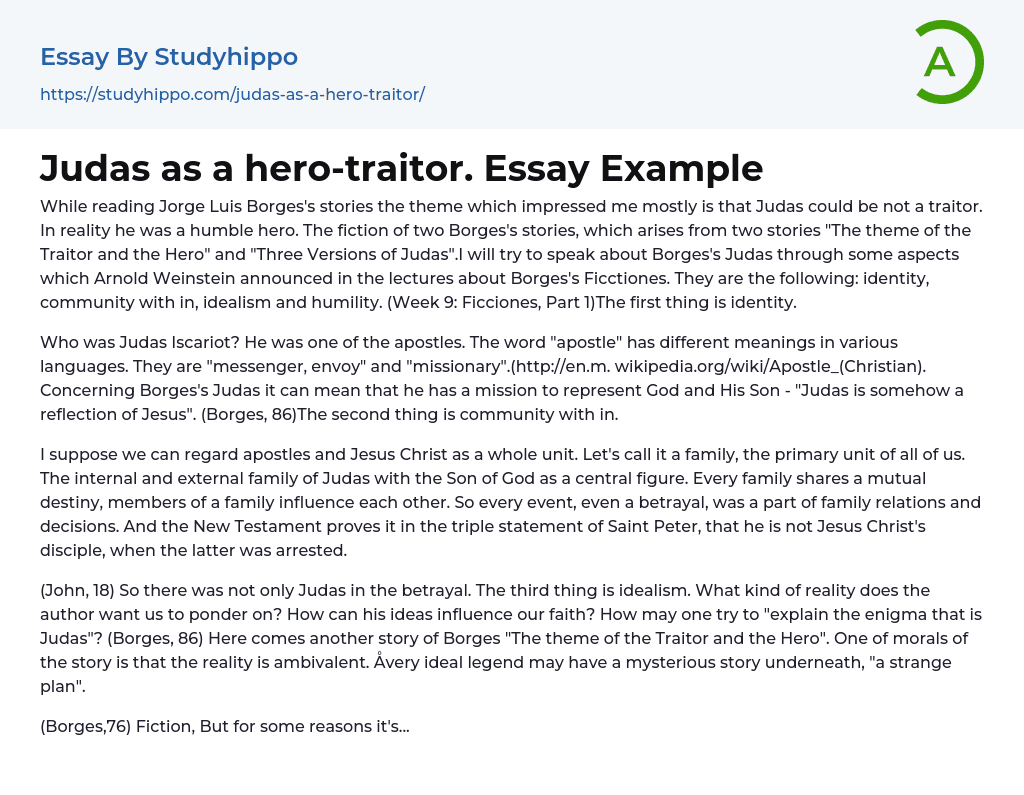When I read the stories of Jorge Luis Borges, one idea that stood out to me was the possibility that Judas may not have been a traitor but rather a humble hero. This concept is explored in two of Borges's stories: "The theme of the Traitor and the Hero" and "Three Versions of Judas". In this discussion on Borges's portrayal of Judas, I will focus on points raised by Arnold Weinstein during his lectures on Borges's Ficctiones: identity, community within, idealism, and humility (Week 9: Ficciones, Part 1).
To start with, let us consider the notion of identity. Who exactly was Judas Iscariot? He was one of the apostles.
The term "apostle" has various meanings in different languages, such as "messenger, envoy," and "missionary". (source: Apostle (Christian)). In Borges's depiction of Judas, this
...may suggest that Judas symbolizes God and His Son - "Judas is in some way a mirror image of Jesus" (Borges, 86). Furthermore, it conveys a sense of unity.
I view apostles and Jesus Christ as a single entity, like a family that encompasses all of us. Let's name this unit the fundamental family. Judas belongs to this family, both internally and externally, with the Son of God serving as its core figure. In every family, there exists a shared destiny, and members of the family affect one another. Consequently, every occurrence, including betrayal, is an element of familial connections and choices.
The New Testament presents evidence in the triple statement of Saint Peter, proving that he too is not Jesus Christ's disciple when Christ was arrested. This undermines the assumption that Judas was the sole betrayer. Additionally, the author prompts us to consider the
concept of idealism and its implications for our faith. How can these ideas shape our understanding? Furthermore, the author raises the question of how one can unravel the mystery surrounding Judas. Borges explores a similar theme in his story "The Traitor and the Hero," suggesting that reality is inherently ambivalent.
Every ideal legend may have a mysterious story underneath, "a strange plan" (Borges, 76). It is fiction, but for some reasons it's...
- Adam And Eve essays
- Baptism essays
- Catholic Church essays
- Christian essays
- Church essays
- Crucifixion Of Jesus essays
- Crusades essays
- Elizabeth essays
- Eucharist essays
- God The Father essays
- Holy Spirit essays
- Jesus Christ essays
- Lord essays
- Pope essays
- Priest essays
- Protestant Reformation essays
- Protestantism essays
- Sacrament essays




